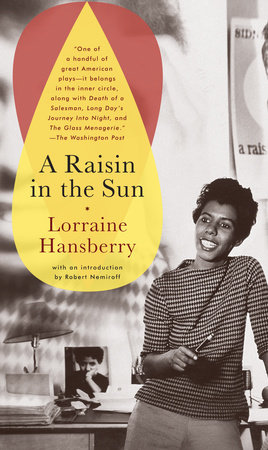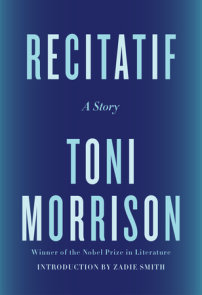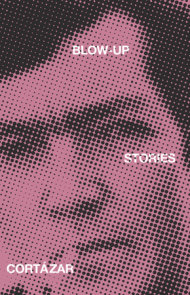TEACHING GUIDE
NOTE TO TEACHERS
The 1959 Broadway production of A Raisin in the Sun was a watershed in theatrical history. At a time when there was perceived to be no black Broadway audience, no commercial viability for a serious black play, and no significant “crossover” white audience for a play about African Americans, the underdog Raisin achieved the impossible: an all-out commercial and critical success. Indeed, its theretofore unknown 29-year-old playwright won the Best Play of the Year Award from the New York Drama Critics, the first black author and only the fifth woman to do so.
In A Raisin in the Sun, Lorraine Hansberry paints an impressive group portrait of the Youngers, a family composed of powerful individuals who are yet in many ways typical in their dreams and frustrations. There is Lena, or Mama, the widowed mother; her daughter Beneatha, a medical student; Beneatha’s brother Walter, a struggling chauffeur; and Walter’s wife, Ruth, and their young son. Crammed together in an airless apartment, the family dreams of better days. Walter longs unrealistically for riches and resents being under his mother’s thumb, while the intelligent and idealistic Beneatha searches for her own identity and that of her race. The family situation is brought to a crisis when Lena receives the first real money they have ever had: $10,000, the insurance payment on her husband’s life. The family finally has the means to buy a house of their own, but the dream proves difficult to achieve, as first Walter’s rage over a lifetime of thwarted dreams, then the hostility of their new white neighbors, would seem to threaten the family’s security and even their self-respect.
In retrospect, Lorraine Hansberry seems to have been astoundingly prescient in highlighting the very issues that would soon leap into prominence in the ’60s and become central themes in the collective consciousness. Hansberry foresaw what in effect turned out to be a revolution in racial, sexual, and social thought: the reawakening of feminist thought after the conservative ’50s that inspired many women to make an active place for themselves outside of the home; the surge of African American pride, the “black is beautiful” ideal that would become so important in the ’60s; the increasingly confrontational scenes in the old battles over integration and equality of opportunity.
While A Raisin in the Sun is very much of its moment, it has also proven to be for all time; its relevance to modern life, its perpetual popularity, is attested to by the fact that it has continued over three and a half decades to be given important and innovative new productions. It has established itself as an American classic.
TEACHING IDEAS
The questions, exercises, and assignments that follow are designed to guide your students through A Raisin in the Sun and aid them in understanding the play both as a work of dramatic literature and as a provocative commentary on the central challenges of middle-class life, not only for African Americans but for families of every race. The questions are divided into sections that test reader comprehension, indicate fruitful topics for in-class discussion, and suggest directions in which students may go in their independent writing and research assignments. Students should be encouraged to keep journals while they read and to write down their questions and observations as they read the play, paying attention to all the points of view presented by the different characters; while many young people will identify with Beneatha, others may find powerful sympathy with Walter, Asagai, Ruth, or Mama. Though many changes have occurred since the play was written, many of the social problems depicted in the play are still a part of our world; students should therefore pay attention to contemporary news items, noting in their journals those that deal with issues and themes raised in A Raisin in the Sun.
DISCUSSION AND WRITING
Comprehension
1. Why does the author go to such lengths to describe the furnishings of the Younger family’s apartment? What do these furnishings and the state they are in say about the family’s lives?
2. What does the absence of light in the Youngers’ apartment signify? Why does Ruth so desperately hope for light in the new house?
3. What is Walter trying to say when he refers to African Americans as "the world’s most backward race of people" (p. 38)? Does he seriously believe this?
4. What can you deduce about the character of Walter and Beneatha’s father, not only from the way his family talks about him but from the character of the family itself? What does his memory signify to each of the family members?
5. What sort of hairstyles were normally worn by African American women in the 1950s? Why does Asagai refer to such styles as "mutilation"? Just how bold is Beneatha’s gesture in cutting her hair? What kind of a statement is she making to the outside world?
6. Who has Ruth actually gone to see instead of the doctor? Why does she consider taking this route?
7. What does Beneatha mean by the term "assimilationist"? Can you think of other words or phrases meaning the same thing? Why does she condemn blues music as being assimilationist?
8. Asagai tells Beneatha that "between a man and a woman there need be only one kind of feeling" (63). Can you explain what he means and why, for Beneatha, this feeling alone is not enough?
9. Mama tells Walter that something is eating him up, something that has to do with more than just money. What do you think this is?
10. Mama says to Walter, "You ain’t satisfied or proud of nothing we done. I mean that you had a home…, that you don’t have to ride to work on the back of nobody’s streetcar" (74). Is Walter’s life indeed likely to have been better, from a material and political point of view, than his parents’ was?
11. What African name has Asagai given Beneatha, and what does it mean? Why is Beneatha satisfied when Asagai translates it for her?
12. In Act II, Scene One, what emotion is Walter expressing when he shouts "Ethiopia stretch forth her hands again!" (77) and "The lion is waking" (78)? Who was Jomo Kenyatta?
13. What does the Youngers’ new house signify to Ruth? To Mama? Why does Walter so strongly resist the idea of moving?
14. What does Asagai expect from a woman? What does George expect from a woman? Would either of them be satisfied with Beneatha? Could she be happy with either of them?
15. How does Mrs. Johnson’s idea of God differ from Mama’s?
16. What does Mrs. Johnson mean when she speaks of the "colored people that was bombed out their place" (100)? Who set off the bomb? Why does she mention this event to the Youngers?
17. Why does Mrs. Johnson say that the Youngers are proud? Does she mean it as a compliment? Are they, in fact, proud? How does pride help, or hinder, them in their progress through life?
18. Why does Mama say that Booker T. Washington is a fool? Do you agree with her?
19. Can you explain what Beneatha means when she says that "there are two things we, as a people, have got to overcome, one is the Ku Klux Klan—and the other is Mrs. Johnson" (104)?
20. What are Walter’s fantasies after Mama gives him charge of the money? Why are they so obviously unrealistic, even destructive?
21. Does Walter’s failed investment confirm Mama’s belief that the Youngers are not businessmen but plain working folks?
22. What does Walter mean when he refers to his sister as a "New Negro" (112)? And why does she call him and Ruth "old-fashioned Negroes"?
23. How does Lindner use language to make his proposal to the Youngers sound almost like a reasonable one? Is it true that "a man, right or wrong, has the right to want to have the neighborhood he lives in a certain kind of way" (117)? Is a "right" actually a right when it infringes on the rights or ignores the humanity of others?
24. Why is Mama’s little plant so important to her? What does she mean when she says "It expresses ME" (121)?
25. Why does Beneatha’s belief in the importance of doctors and medicine change after Walter loses the family’s money?
26. Why is Asagai able to identify himself so intensely with the future of his country, however it may go? Why is Beneatha, at least temporarily, unable to do so?
27. After he has been robbed, Walter says that life is divided "between the takers and the ‘tooken’" (141). Do the final events of the play prove him wrong? If so, how?
28. What does it mean, to Walter, to be a "Man"?
In-depth discussion
1. Lorraine Hansberry prefaces her play with a poem by Langston Hughes. How does the play illustrate the theme of the poem? In what way is the concept of the "dream" central to the play? Which characters specifically discuss their dreams? What is Mama’s dream in life? Ruth’s? Walter’s? Do dreams ever become destructive, a substitute for action? Or is it absolutely essential to keep a dream alive?
2. In the first scene, Travis experiences "anger" and "frustration" (29). Is it implied here that such feelings will inevitably be his lot in life, as an African American man? If so, does this implication change over the course of the play?
3. In the fifties, it was extremely ambitious for a young black woman to set out to become a doctor. What does it say about Beneatha that she is determined to pursue this career? What does it say about Mama’s character that she is entirely supportive of her daughter’s choice? Is it natural that Walter should be resentful? How do Beneatha’s two boyfriends, Asagai and George, really feel about her ambitions?
4. George angers the Youngers with his cynical attitude and his mockery of Beneatha’s veneration for "our Great West African Heritage." But is George presented as an entirely unsympathetic character? Is it possible to find anything sensible or realistic in his point of view?
5. Except for Asagai, none of the characters in the play has been to Africa. What do Africa and Africanness signify to each character?
6. What does Mama mean when she says "We ain’t no business people, Ruth. We just plain working folks" (42)? Do you believe that she is correct, or is her attitude defeatist? Does Ruth, in her heart of hearts, believe her? What would Beneatha’s response be to this statement?
7. Beneatha declares that she is searching for her "identity." In what does her search consist? Does she find it, at the end of the play?
8. What does Walter mean when he says money is "life" (74)? Considering what his life has been, is he justified in saying this? Is it simply lack of money that has deprived Walter of so many important things—his sense of manhood, of pride, his love of family? Why, in your opinion, is the Youngers’ poverty so much harder on Walter than on the rest of the family?
9. "That is just what is wrong with the colored woman in this world," Walter says to Ruth; "Don’t understand about building their men up and making ’em feel like they somebody." Do you feel that Ruth has not been sufficiently supportive to Walter? That she has failed him in some way (84)?
10. For budget reasons, the character of Mrs. Johnson was cut in the original production of the play. Do you feel that the scene is essential to the play? If so, why? If not, why not? What does the scene tell us about the world in which the Youngers live?
11. In his introduction, Robert Nemiroff says that some audience members have perceived Mama as "conservative," an "upholder of the social order." What do you think about this proposition? Doesn’t it depend on one’s definition of "conservative"? Can you come up with a good definition?
12. Is God a real presence to any of the characters besides Mama? Does Mama’s religion give her strength, or is the strength already in her character? Does Beneatha’s rejection of her mother’s God make her stronger, or more vulnerable?
13. Many of the problems the Youngers must confront are specific to the African American family; others are problems that every family, black or white, must deal with. What in the play do you see as specifically African American, and what is universal?
14. Through most of the play, Walter is shown in a state of arrested development, still very much like a teenager. Do you feel, as Mama comes to, that because for many years she refused to cede the position of head of the family to him, she is to blame for the deficiencies in his character?
15. Though three of them work as servants, Mama and her family believe that "being any kind of a servant wasn’t a fit thing for a man to have to be" (103). This belief goes against one that, because of Booker T. Washington’s influence, had value in the black community at that time: that all labor was possessed of dignity. Do you side with Mama on this issue, or with Washington? What are your reasons? Is this purely a racial matter, or is it a problem which all races must solve?
16. Asagai sees "what the New World hath finally wrought" in Beneatha—but Beneatha, with a darker vision, sees it in Walter. In what way are they both right? How has American society, with its strengths and weaknesses, shaped both Beneatha and Walter?
17. In answer to someone who thought the play’s ending was a happy one, Lorraine Hansberry retorted: "I invite him to come live in one of the communities where the Youngers are going!" (11) But cannot the ending, in some measure, be seen as happy? Or at least as promising hope, or greater strength for the Youngers as a family?
SUGGESTED ACTIVITIES
Expanding your knowledge
1. The continuing popularity of A Raisin in the Sun would seem to imply that the play is as relevant to contemporary audiences as it was when it first appeared. Is this your opinion? Which issues addressed in the play are still immediate, and which are inscribed within a historical moment that is over? Has life for African Americans gotten better or worse since the play was written? In what ways?
2. A Raisin in the Sun takes place in 1959. The Younger family had no way of predicting the many changes that would occur in American society in the ’60s, ’70s, and ’80s. Try to imagine what might have happened to the Youngers in the years following the action of the play. Did Beneatha become a doctor? Did she get married? Have Walter and Ruth succeeded in their reconciliation? What sort of life and career has Travis had? How has each family member responded to the challenges of life in the 1990s? Write a few paragraphs telling what, in your opinion, might have happened to all the members of the Younger family.
3. Neighborhood integration, like school integration, has proven to be a long and painful process; there are still incidents of backlash against it today. Research the history of integration. Have the violent incidents escalated, or have they lessened? Has the integration process ultimately been successful, or has it been a failure, simply confirming the grim reality of the ghetto?
4. Mama criticizes Walter for not appreciating the improved opportunities that African Americans had recently built for themselves. Read about the "Jim Crow," or segregation, laws that operated for many decades. What changes had already occurred in these laws during Walter’s lifetime? In what ways had life for African Americans altered since World War II? Did new rights bring new problems in their wake?
5. In the 1950s and ’60s, politically alert African Americans like Beneatha found an inspirational example in Africa, where one country after another was throwing off colonial rule and achieving independence. Among the heroes of this period were Jomo Kenyatta of Kenya, who instigated the Mau Mau uprising, and Gamal Abdel Nasser of Egypt, who humiliated the British and French in the 1956 Suez crisis. Read about this period of decolonization and independence. How do these events, taking place on a faraway continent, affect the Youngers’ self-awareness and their outlook on life?
6. The conflict between "assimilationists" and "New Negroes" mentioned in the play was of specific concern at that time: activists like Malcolm X and Marcus Garvey, who espoused black separatism, fought against the more conservative ethos of racial uplift, humility, and hard work. But this was not simply an issue for the ’50s; the debate continues to be an active one. Read the newspapers for two or three weeks, paying special attention to racial issues. How many news items and editorials can you find that address questions of separatism and assimilation? The idea of the American "melting pot" was one to which almost everyone paid lip service in the ’50s; is it still accepted?
7. Beneatha expresses several concerns that would soon be voiced by the women’s movement that blossomed in the ’60s and ’70s. What were some of the changes feminists of that period hoped to make in their society? Which of these changes have been achieved, and which have not? What does Beneatha, as a woman, want from society and from a husband? In what ways do her ambitions and needs differ from those of her mother? Of Ruth? Do you think that Beneatha would find her life easier or more fulfilling in the 1990s?
OTHER TITLES OF INTEREST
James Baldwin: The Fire Next Time, Nobody Knows My Name, Notes of a Native Son; Robert Coles: Children of Crisis, Volume I: A Study of Courage and Fear; Lorraine Hansberry, Les Blancs: The Collected Last Plays, The Movement, The Sign in Sidney Brustein’s Window, To Be Young, Gifted and Black; Jomo Kenyatta: Facing Mount Kenya; Martin Luther King, Jr.: Why We Can’t Wait; Studs Terkel: Race: How Blacks & Whites Think & Feel About the American Obsession; C. Vann Woodward, The Strange Career of Jim Crow
ABOUT THIS GUIDE
This teacher’s guide was written by Brooke Allen. Brooke Allen has a Ph.D. in literature from Columbia University, and has spent several years in France as a teacher and a journalist. She writes regularly on books for The New Criterion, The Wall Street Journal, and other publications.
COPYRIGHT
Copyright © 1995 by VINTAGE BOOKS
For more information, please email acmart@randomhouse.com or write to:
Random House Academic Marketing
1745 Broadway 20-2
New York, NY 10019
×
Become a Member
Just for joining you’ll get personalized recommendations on your dashboard daily and features only for members.
Find Out More Join Now Sign In



















